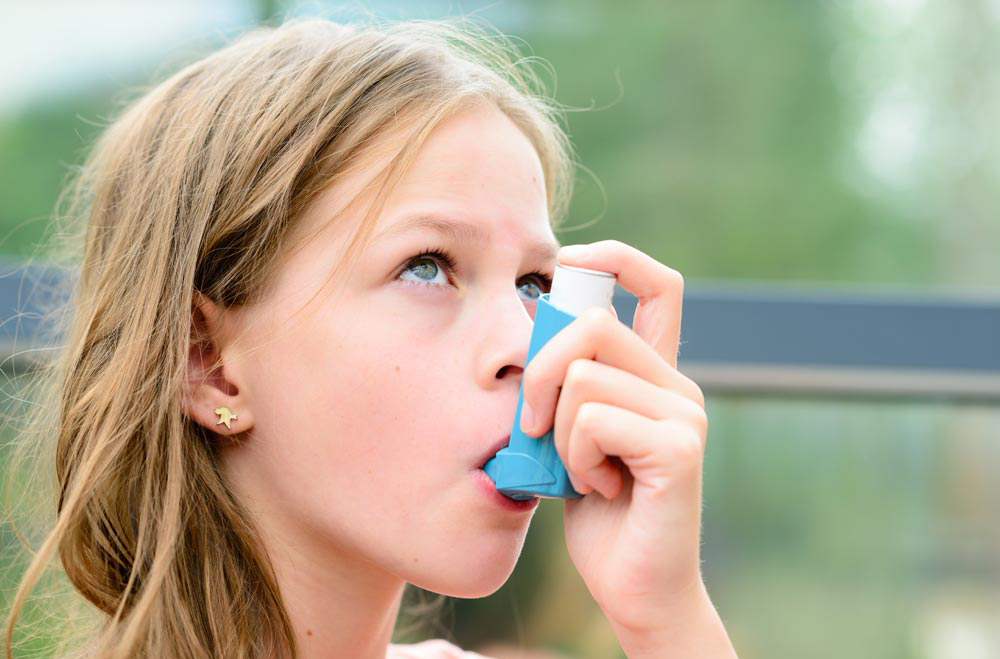Asthma is prevalent among both adult and children worldwide. According to the Singapore Health Promotion Board, it affects five per cent of adults and 20 per cent of children in Singapore.
The condition can cause disrupting symptoms that affect the daily lives and emotional status of its patients such as sleeplessness, daytime fatigue and reduced activity levels. In severe cases, hospitalisation may be required.
Here, Dr Kenneth Chan, Consultant Respiratory Physician and Intensivist of Respiratory Medical Associates shares what to do if you believe that your child might have asthma and how you can help your child manage the condition better.
Mummyfique: What are the usual signs that your child has asthma?
Asthma can be identified by the presence of several symptoms, occurring several times a day or week, including wheezing, shortness of breath, chest tightness and coughing. The symptoms often worsen at night or in the early morning, during exercise, while experiencing strong emotions such as laughter or crying, as well as in the presence of viral infections, or irritants such as car exhaust fumes, smoke or strong smells.
What should parents do if they suspect their child has asthma?
Parents should consult a doctor immediately if they spot early signs of asthma as repeated flare-ups can lead to sleeplessness, daytime fatigue and reduced activity levels, all of which have a huge impact on the child’s daily life. The doctor may perform a physical examination and conduct some tests, such as the breathing test (lung function test), peak expiratory flow test and allergy test to confirm the diagnosis.
In children below the age of five, lung function tests can be inaccurate, which makes diagnosis difficult. Thus you should give your doctor clear and detailed information about your child’s symptoms to make it easier for the doctor to diagnose the condition.
How does one usually get asthma?
Asthma affects people of all ages and ethnicities, and most frequently begins in childhood. A combination of genetic predisposition and exposure to inhaled substances like allergens or pollution that provoke allergic reactions or irritate the airways are believed to bring about asthma.
According to various studies, one’s risk of contracting asthma increases, if they have parents with asthma or obesity, have pre-existing allergic conditions such as eczema, or are constantly exposed to triggers and cigarette smoke.
What habits can parents instill in children to help them manage asthma better?
Teaching them to identify common triggers and avoiding them is key to helping them manage their condition.
Parents should educate their children on the correct usage of their asthma medication and devices, and the importance of taking these regularly. If they have been prescribed a preventer inhaler, get them to take their preventer medicine at the same time in the same place every day. Overtime it will become a part of their everyday routine, and they’ll be less likely to forget to take their medicine.
Parents can also help children understand the prescribed Asthma Action Plan from the doctor and encourage them to ask the doctor any questions or concerns they might have.
What are some common mistakes made in managing asthma and how should they be corrected?
Some common mistakes or habits which result in poor asthma management include wrong inhaler usage technique, irregular use of preventer medications and the reliance on rescue medications for quick-relief of sudden symptoms.
According to an asthma poll conducted by GSK on Singapore adults, nine in 10 individuals on a preventer inhaler struggle with the correct usage technique on their own. Hence, both children and adults should get their technique reviewed regularly by their GPs.
Managing asthma is an ongoing task and parents should help by working closely with their child’s doctor to ensure that the Asthma Action Plan is always up to date. Parents can also constantly monitor their child’s inhaler usage technique, check that they carry it with them and remind them of the need to use the preventer inhaler on a regular basis.
Dr Kenneth Chan is a Consultant Respiratory Physician at Respiratory Medical Associates. He is a specialist in respiratory medicine with special interests in bronchoscopy, smoking cessation and intensive care medicine. He is also a visiting consultant to Singapore General Hospital and an Adjunct Assistant Professor at Duke-NUS Graduate Medical School.



